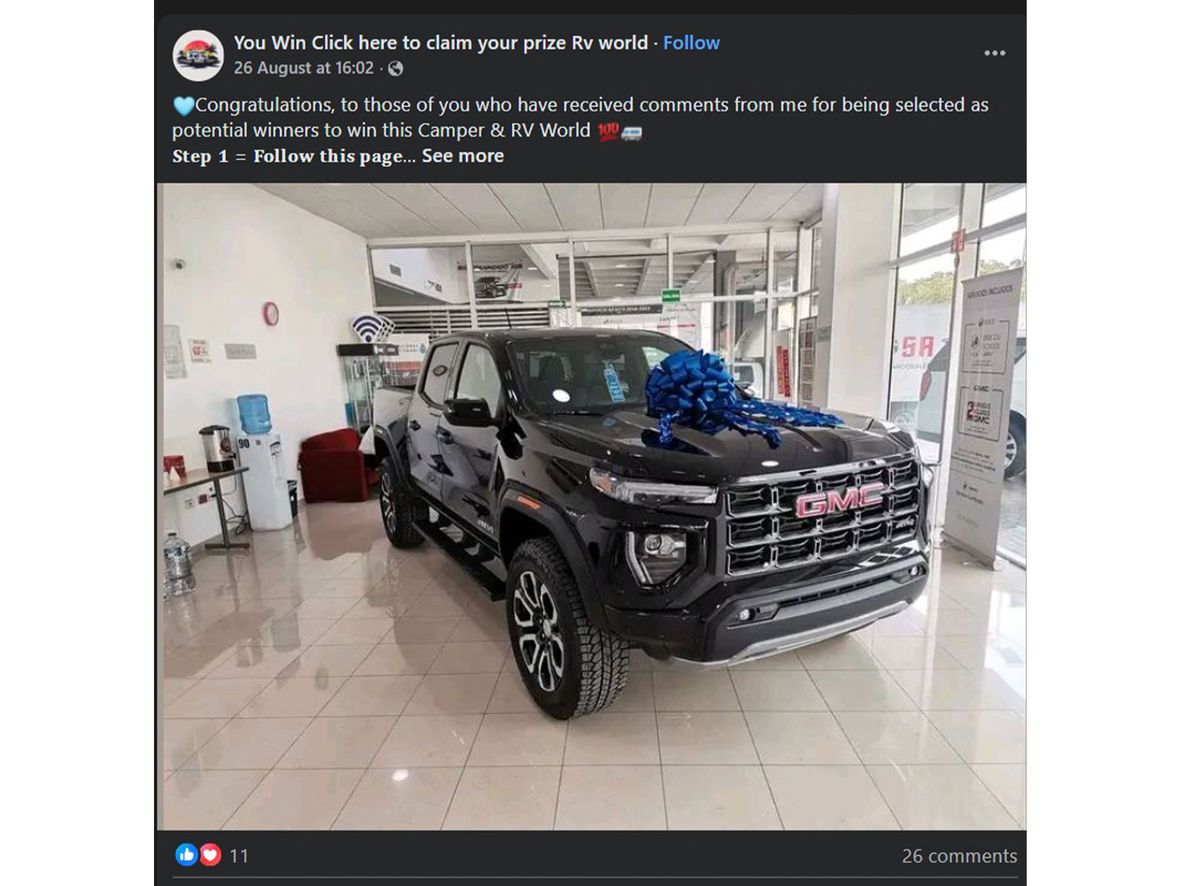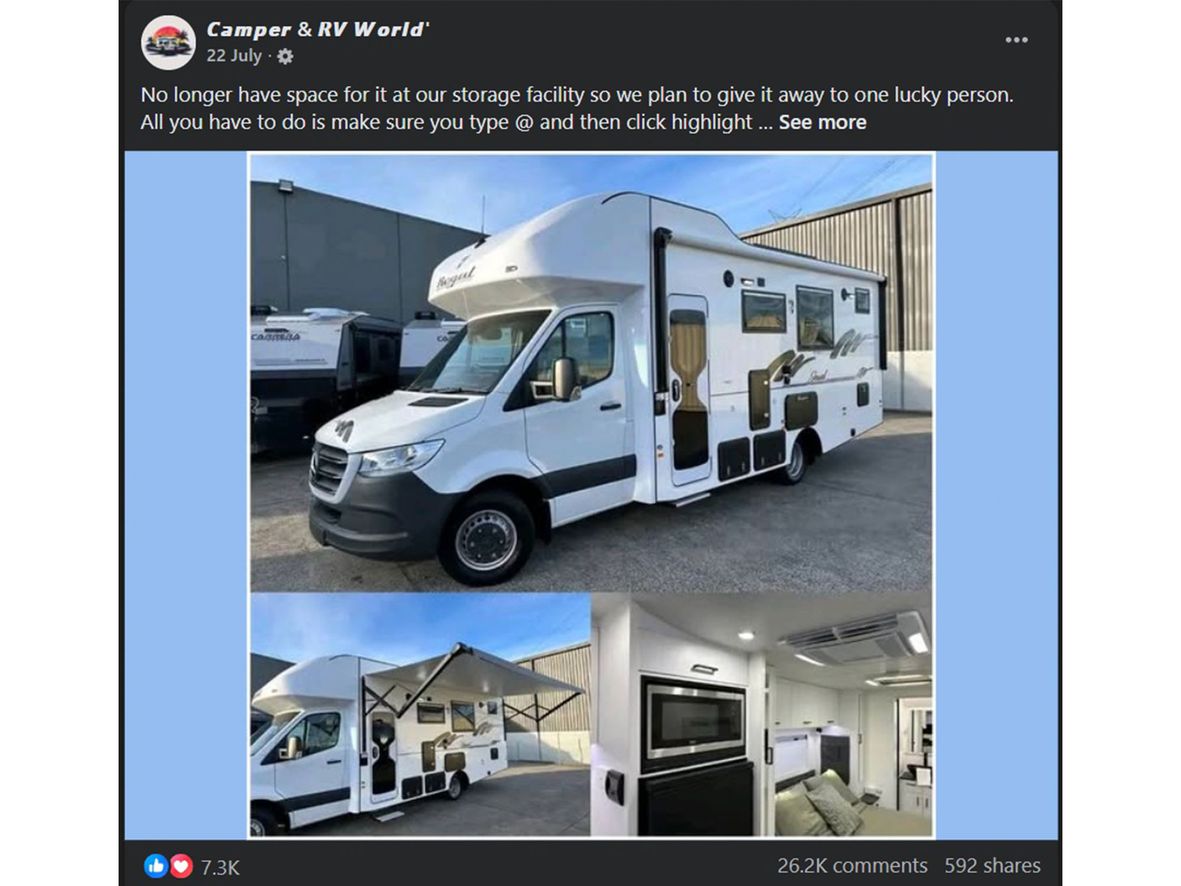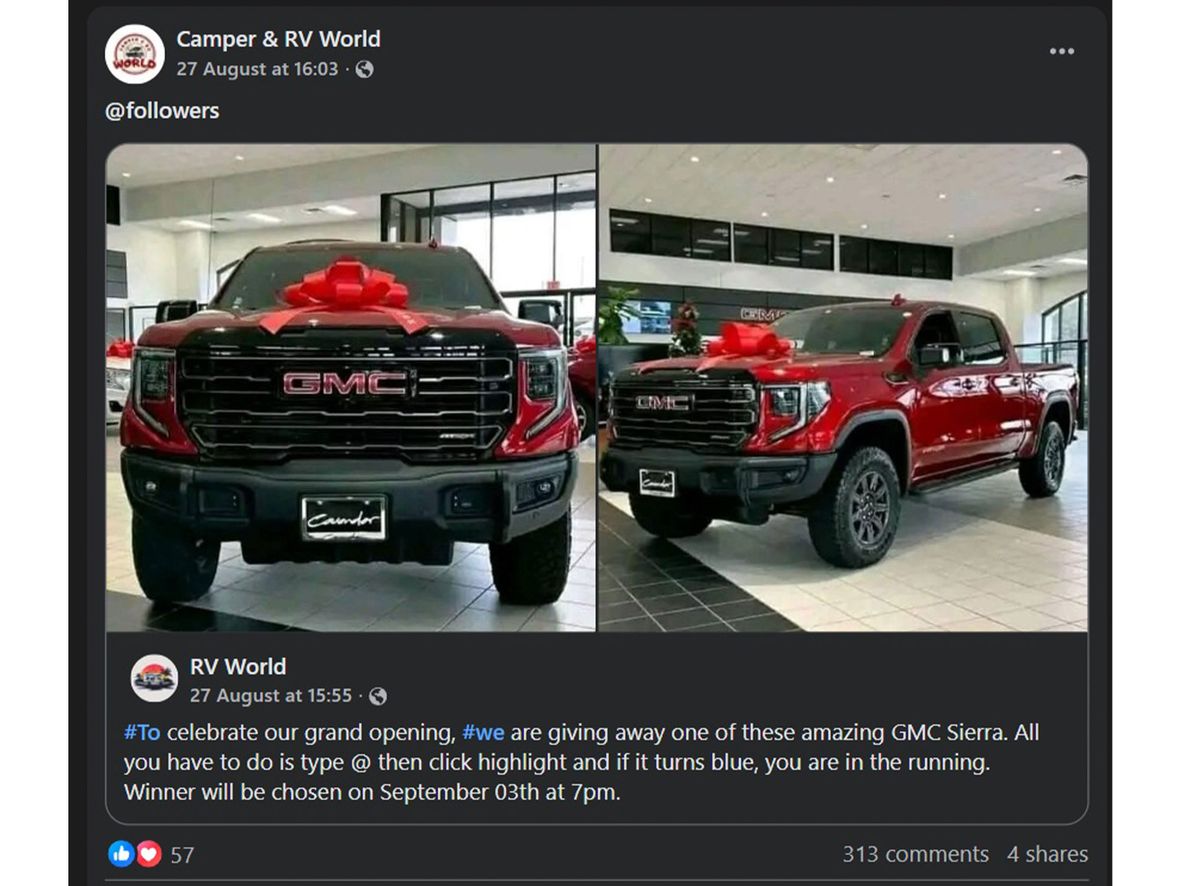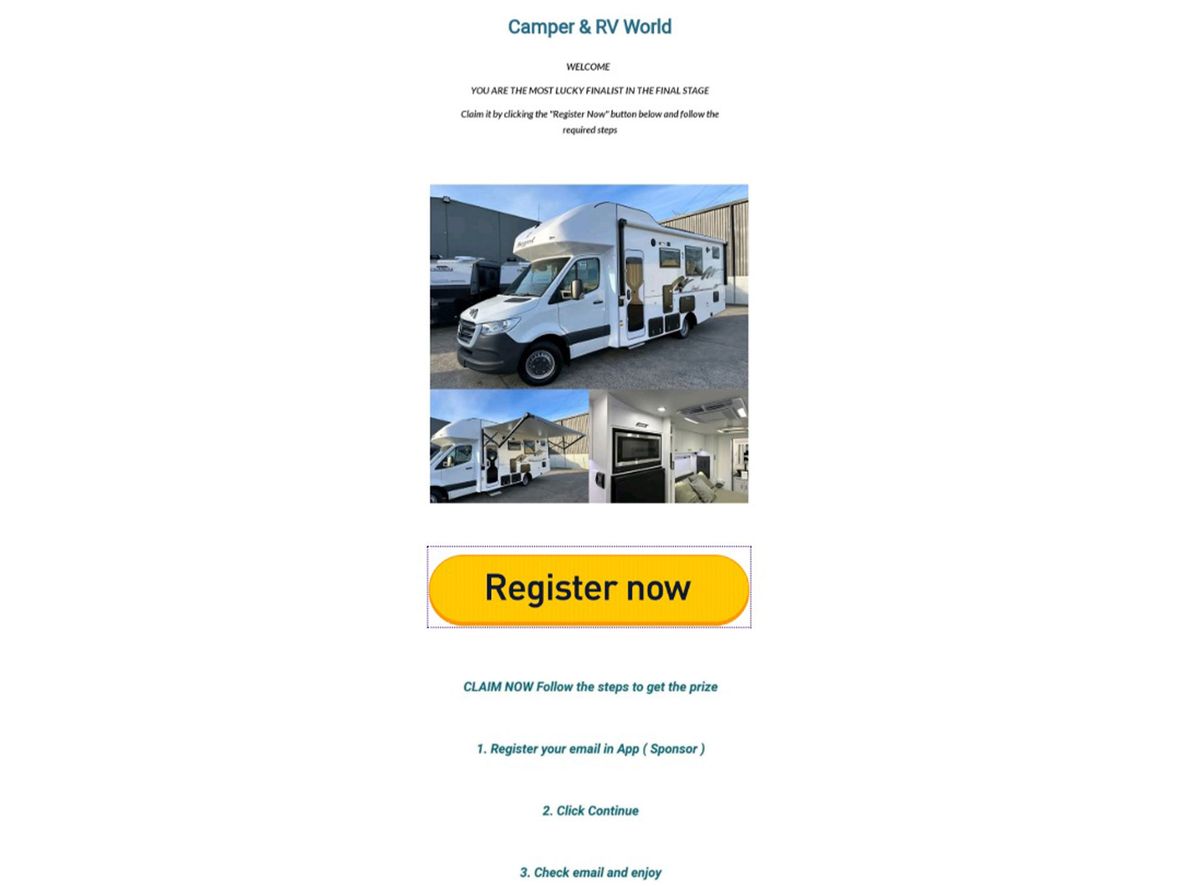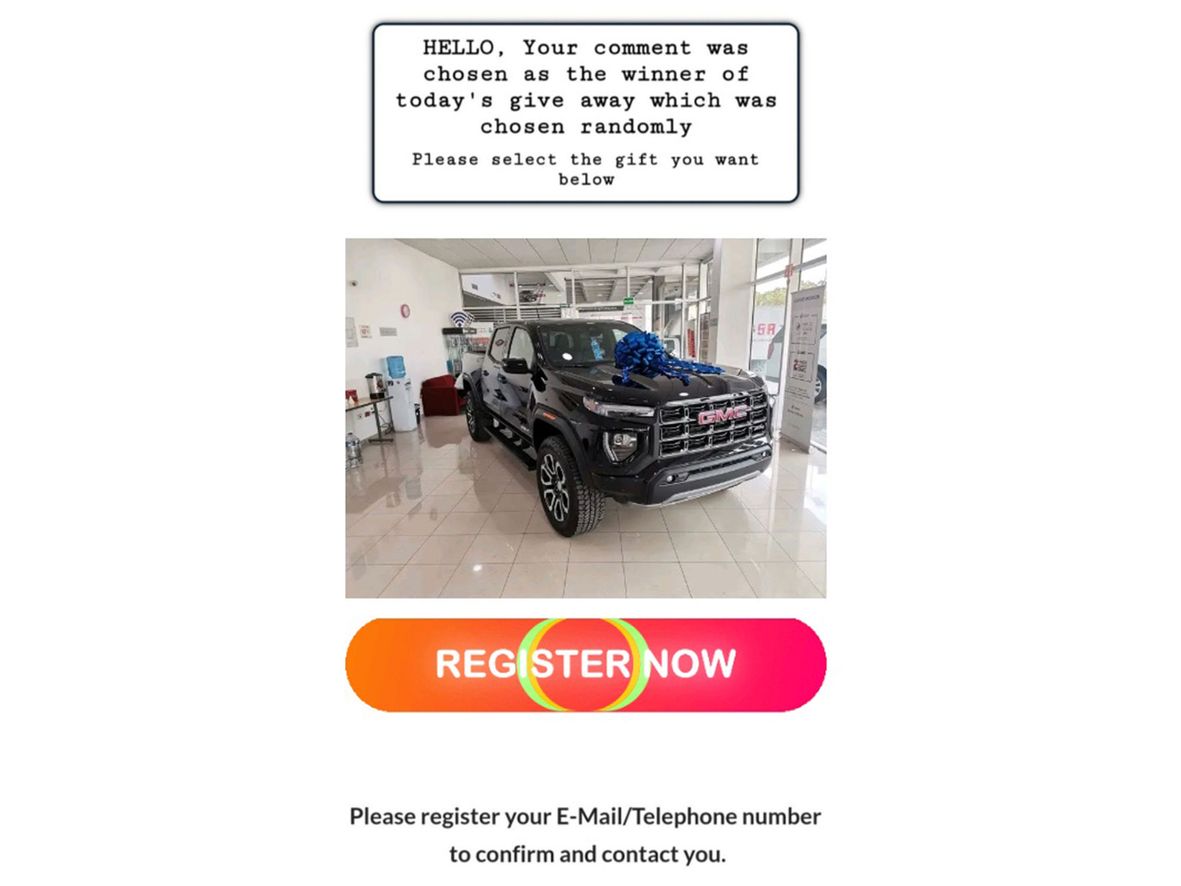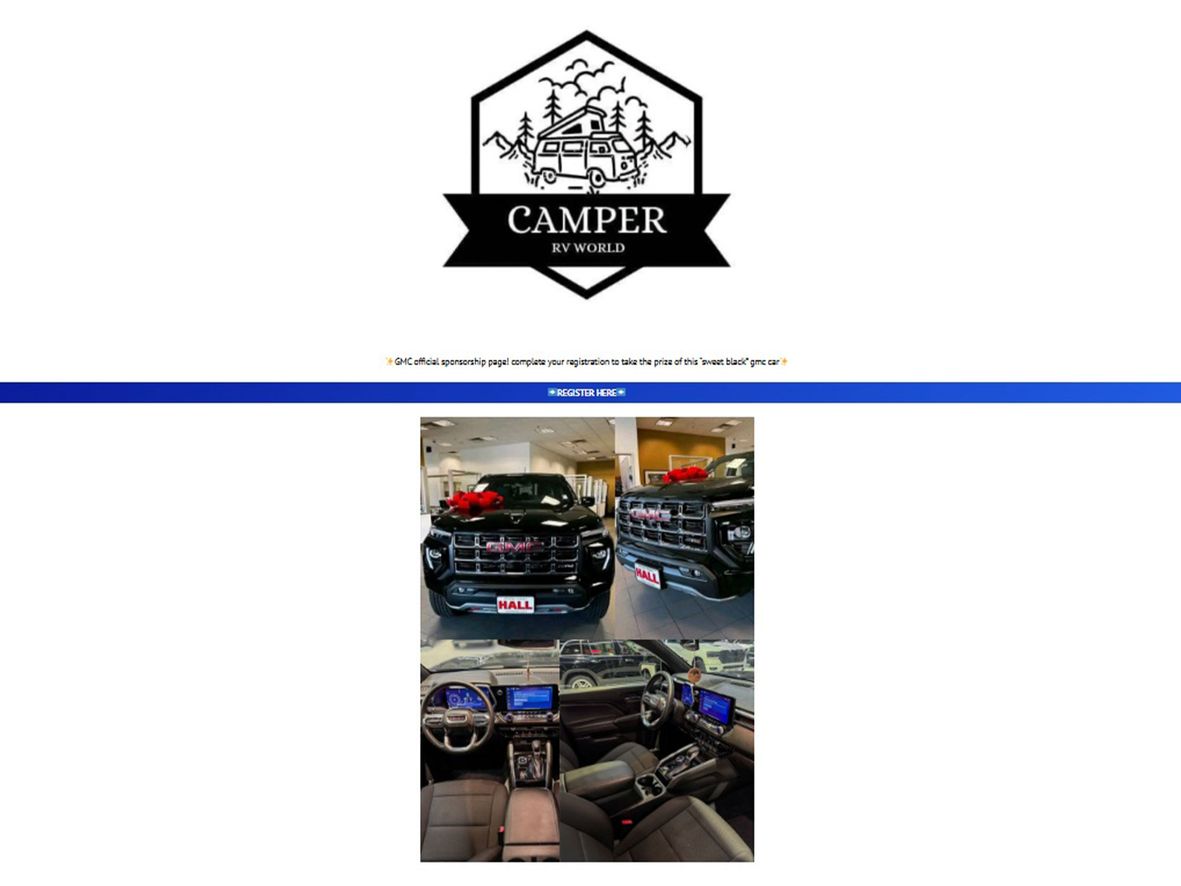Fraudsters run fake premium vehicle giveaways on Facebook

Which? is raising the alarm on premium vehicle competition scams after spotting several appearing on Facebook and finding worrying reports of these nasty traps catching people out.
Premium vehicle competitions are a sneaky attempt to get you to part with your personal information. You get absolutely nothing in return – the only likelihood is that your data will be used against you by a scammer. It's a common trick that typically leads to the fraudster targeting you with more convincing scams in the future.
Below, we examine these competition scams and explain what to do if you've been caught by one.
Sign up for scam alerts
Our emails will alert you to scams doing the rounds, and provide practical advice to keep you one step ahead of fraudsters.
Sign up for scam alerts
'Camper and RV World' scam
Which? has come across several posts from a Facebook page called ‘Camper and RV World’ stating that you can win big. All posts claimed to be offering an expensive vehicle giveaway in exchange for following a link and parting with your personal and sometimes financial data.
According to the posts, you can win by commenting on the post. One of the scam posts Which? came across stated: ‘All you have to do is type @ then click highlight and if it turns blue, you are in the running.’ Another post we saw featured thousands of comments.
Some of the apparent motivations for the giveaways included no longer having storage space at the facility where the vehicle is being held and celebrating a grand opening.
One 'winner' shared that they had received a direct message stating that they had won. The message informed them to follow a link to a website, warning them that if they didn't 'complete the registration', they would be disqualified.
We traced one image of an RV featured in a post back to other posts – where it was also being sold in Australia. An image from another post of a luxury car appeared to be linked to a Facebook account targeting US-based users with fake giveaways.
Competition registration websites
When we inspected the links appearing in these fake giveaways, we found that the websites would first gather your details as 'registration' for the competition. They would then lead to various ‘reward companies' that claimed to offer gift cards, including a £100 Lidl gift card and a £750 gift card to spend at Airbnb.
We shared our findings with Lidl and Airbnb, and both confirmed that they weren't associated with the websites or the vouchers offered.
Which? has previously warned about using rewards companies, which often advertise high-value gift cards at popular brands. Previous research found rewards companies that used misleading adverts and posts, which omitted information that their vouchers were only attainable following a series of paid subscriptions and downloads.
Several reviews suggested that this same tactic is being used in these premium vehicle competitions, as reviewers claimed they had to complete various tasks to receive a voucher, but it never materialised.
Spotting social media scams
If you see a post or ad on social media that looks suspicious, here are four signs that it's a scam:
- Offers and giveaways that sound too good to be true.
- It's a post from a new or unknown page – trusted brands will have well-established pages on social media, so posts from random pages or accounts should be avoided.
- Dodgy URLs – check the URL to see if it matches that of the official brand. Scammers can create convincing copycat websites, so don't be fooled by the look and feel of the website. You can also inspect the link using a website domain checker, like who.is – a newly created website is a red flag.
- Stolen images – use a tool like TinEye to trace the source of pictures. Simply copy the image into the website to see if it appears elsewhere.
Reporting social media scams
Which? reported the posts and pages we found. Some have been removed, but others remain live.
New duties under the Online Safety Act require platforms to do more to prevent user-generated fraud, such as this, on their sites. Enforcement of these rules falls under Ofcom, which has the power to fine platforms up to £18m or 10% of global revenue, whichever is greater.
On social media, you can report scam posts and adverts by selecting the three dots in the top right corner and pressing ‘report’. You can report a profile or page on Facebook by selecting the three dots at the top right of the page and pressing ‘report page’.
Suspicious websites can be reported to the National Cyber Security Centre.
If you lose any money to a scam, call your bank immediately using the number on the back of your bank card. Also report it to Action Fraud, or call the police on 101 if you’re in Scotland.

